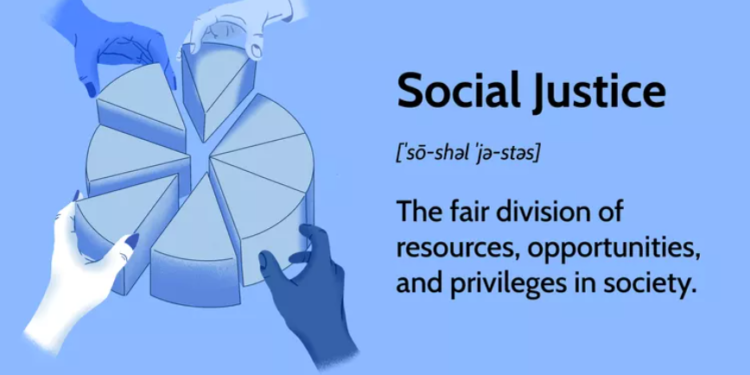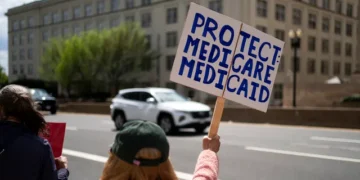July 24, 2024 Story by: Editor
The Dr. N. Joyce Payne Center for Social Justice (CSJ) has been a pivotal force in addressing social justice issues and improving the lives of Black Americans. Scholars emphasize the importance of a think tank like CSJ, particularly one rooted in the mission of historically Black colleges and universities (HBCUs), as it plays a crucial role in advocating for the Black community.
“The Payne Center sees the challenges and opportunities for the Black community as complex, requiring the intellectual collaboration of leaders across various fields,” explains Dr. Fred A. Bonner II, the Wilhelmina Delco Endowed Chair in Educational Leadership at Prairie View A&M University and a key collaborator with CSJ.
Founded by Dr. N. Joyce Payne, who also created the Thurgood Marshall College Fund (TMCF), CSJ was launched in 2021 to advance social justice for Black Americans. The center has become a significant research hub, connected closely to HBCUs, and works to identify and study pressing issues while developing sustainable solutions.
“We aim to engage HBCU scholars in the research efforts of the center and address the full range of human needs of the Black community,” Payne stated in an interview with *Diverse*.
Focus Areas
CSJ concentrates on six primary areas: civic participation, economics, educational equity, future work, communities, and organizational entities. These focus areas were established after extensive research and interviews with scholars and community leaders.
“After nearly 40 years of work at TMCF, we were able to clearly define the issues disproportionately impacting Black America and HBCUs,” Payne added.
Dr. Harry L. Williams, president and CEO of TMCF, points out that social injustices are embedded in policies and practices at every level of government and industry. “Injustice costs lives and limits opportunities for millions of African Americans and historically marginalized groups,” Williams remarked. He also highlights the significant role HBCUs play in educating African Americans and their contribution to producing professionals across various industries.
“As the largest supporter of Black colleges, it’s essential for TMCF to partner with the Payne Center to advance social justice for Black Americans through research and public policy,” said Williams.
Impact on Higher Education
The center’s focus on HBCUs distinguishes it from other higher education research initiatives, according to Dr. M. C. Brown II, CSJ’s executive director. HBCUs have a unique mission to uplift African Americans, making them central to the CSJ’s research efforts.
“It’s not just about the work we do, but about raising the visibility of the work being done on HBCU campuses,” said Brown, who has also served as president of Alcorn State University and Kentucky State University.
Advancing Social Justice
The Payne Center actively contributes to public policy discussions and advances racial equity by advising public officials on policies impacting communities of color. The center also works closely with the Agora Strategy Council, which brings together scholars and practitioners with a focus on supporting Black communities.
“Our work is centered on real-world applications, and many of the projects we support are not eligible for traditional academic research funding,” said Dr. Christopher B. Knaus, a member of the Agora Strategy Council.
Supporting HBCU Scholars
The Payne Center provides an intellectual space for HBCU scholars to critically analyze issues affecting Black communities. “The center allows HBCU scholars to authentically tell their own stories,” Bonner said, noting that diversity, equity, inclusion, and belonging (DEIB) are central to much of the research being conducted.
The CSJ has several initiatives underway, including the Payne Center Book Series and The Payne Center Journal on Race and Social Justice. Additionally, a major convening in 2025 will explore reparative justice in higher education, focusing on institutional access to funding for marginalized communities.
“We aim to challenge deeply rooted structural inequities in public and private policies,” Payne stated. “Now, more than ever, we need an America that truly invests in realizing human potential as a pathway to education, social justice, and economic prosperity.”
Future Research and Projects
In collaboration with institutions like Binghamton University, CSJ recently held a summit addressing climate change and its disproportionate impacts on Black communities. The center is also exploring global partnerships, such as linking HBCU administrators with university leaders in Southern Africa.
In the coming months, CSJ will release its second annual “Black Thriving in America” report, which gathers data on how Black Americans feel about various aspects of life, including work, education, and healthcare. The findings aim to provide policymakers with the data needed to make informed decisions.
“We use traditional social science research methods, large datasets, and quantitative analysis to avoid interpreting data and instead present facts,” Brown noted. “This allows public officials and administrators to conduct their own analysis.”
The Payne Center continues to drive meaningful change by connecting research, policy, and real-world solutions to improve Black life in America. As Payne concludes, “We intend to disrupt the status quo and bring forth ideas that elevate the quality and opportunities available to Black Americans.” Source: Diverse Education

















